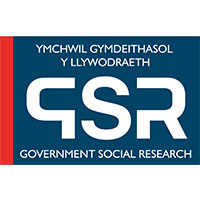A report which contains two pieces of research: a survey of public sector body boards and a review of relevant literature on diversity in the public sector.
This is the latest release
Main survey findings
- A lack of standardisation in how diversity data is collected and reported makes it difficult to report diversity information across all Public Sector Bodies as a whole.
- It is not possible to determine an accurate response rate for the survey. Findings should be considered with caution as the information is provided by a volunteer sample, and some groups may be under or overrepresented in the data.
- Compared to Census 2021 population results for Wales, the survey suggests a slight under representation of Black Asian and Ethnic minority people.
- There was a larger under representation of disabled people.
- There were more females than males on Public Sector Body boards.
- 9% of those Board members that responded identified as Gay or Lesbian, Bisexual or another minority sexual orientation (LGB+).
- No respondents (0%) stated that the gender they identify with is different to their sex registered at birth.
- Self-reporting staff surveys are the easiest ways of collecting large amounts of diversity data particularly using administrative resources such as self-service HR portals and employee induction.
Main findings from the literature review
- Results of the data collection should be publicly available for accountability reasons after considering disclosure concerns.
- Diverse public sector body leadership often more able to make policy which more accurately accounts for the diverse needs of the public which it serves.
- A key driver for ongoing disparity in public sector bodies is a progression gap which becomes more prominent with seniority.
- Socio-Economic background may be a key barrier to progression in the public sector.
- A lack of available data is a barrier to the implementation of effective interventions.
- Sharing diversity objectives and clear accountability for senior leaders can improve diversity and representation.
- Perception of fairness is just as key for improving diversity and inclusion as structured and implemented policies.
- Training on unconscious bias and inclusive practices is important so that policies are not seen as tick box exercises.
Reports

Review of diversity in the public sector workforce and boards in Wales , file type: PDF, file size: 824 KB
PDF
824 KB
If you need a more accessible version of this document please email digital@gov.wales. Please tell us the format you need. If you use assistive technology please tell us what this is.
Contact
Equality Evidence Unit
Rydym yn croesawu gohebiaeth yn Gymraeg / We welcome correspondence in Welsh.

